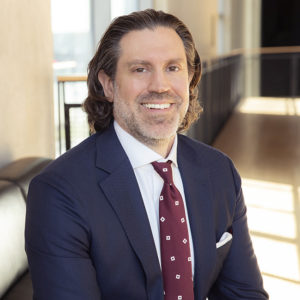One question that comes up often is “who can own a med spa?” Unfortunately, the answer to this question is not always straightforward. First, it is important to note that the term “medical spa” can be used in many different ways within the industry. It could be called a MedSpa, or Medi Spa or med spa. Second, regardless of the way the term is used, a medical spa is a branded term for a medical practice where a patient can go for a variety of cosmetic and (typically) non-invasive procedures—ranging from Botox® to chemical peels and laser treatments. The continued growth of the medical aesthetics industry and increasing revenues of med spas has attracted intense interest from private equity and other investors. But there are some key regulatory requirements investors and potential owners need to be aware of when considering med spa ownership. The rules around med spa ownership vary by state, and unfortunately many states offer very little or even conflicting guidance. This article will look at some of the considerations for both medical professionals and non-medical professionals when contemplating med spa ownership.
Med Spas and the Practice of Medicine
As noted above, the first important fact to understand is that a med spa is a medical practice. Most states define the practice of medicine broadly, so many services that intuitively may seem non-medical do qualify as medical services. This can include services commonly provided in med spas which are considered “non-invasive.” In most states, any time a person diagnoses, treats, operates, or prescribes for any human disease, pain, injury, deformity, or other physical or mental condition of another person, it is considered the practice of medicine. Although many aesthetic or cosmetic medical procedures performed in med spas are commonly referred to as “cosmetic treatments,” they constitute medical services and must therefore be performed by or delegated to an individual acting within the appropriate scope of practice.
Med Spa Requirements
Because a med spa is a medical practice, owning one means taking heed of certain regulations and unfortunately, as mentioned, many states offer little or even conflicting guidance regarding med spas. However, one important regulatory hurdle is the corporate practice of medicine (“CPOM”). The prohibition against CPOM is a state law doctrine developed to ensure only licensed physicians (or entities wholly owned by licensed physicians) practice medicine, thus limiting the commercialization of medicine by non-physicians. If the services provided by a business are not the practice of medicine, then the business will not be regulated by a state’s CPOM laws. However, as we discussed, most states define the practice of medicine broadly. Accordingly, most states regulate med spas in the same way they do other medical practices. This can cause confusion for entrepreneurs, mid-level practitioners, spa professionals and other non-physicians looking to participate in med spa ownership. Some states, like Texas, have enacted specific laws stating non-invasive services are in fact considered medical services. Texas Administrative Code (“TAC”), Section 193.17, “Non Surgical Medical Cosmetic Procedures” clarifies that the provision of nonsurgical, elective procedures is the practice of medicine. For a more detailed discussion on CPOM in Texas check out our field guide.
Considerations for Medical Professionals
In general, licensed physicians (MDs and DOs) can open and operate med spas in every state. While there are states requiring a licensed physician to be the full owner of a med spa, some states allow other licensees such as nurse practitioners (“NP”), physician assistants (“PA”), or registered nurses (“RN”) to partner with a licensed physician to open a med spa. How such states allow for the partnership will once again be state dependent. While some states may impose limitations on the amount of ownership the non-physician may have (i.e. California at least 51% must be owned by the physician), other states may be silent as to limitations. Yet, while medical professionals may have an ability to own a med spa, the management services organization (“MSO”) model is still a necessary structure to deal with the desire of the non-physician to “own” and not share a portion (or a majority) of the business.
Considerations for Non-Medical Professionals
But what if you’re a non-medical professional wanting to own a med spa? The MSO model, with proper set up and implementation, has long been the gold standard as the model used when non-physicians are involved in a health care arrangement. An MSO is a non-professional entity and can therefore be structured using any type of non-professional entity such as a corporation, limited liability company, or limited partnership. The MSO is an entity whose purpose is to provide management, administrative, and support services to other businesses. In the context of a med spa, the MSO is performing these services for the med spa, so that the medical professional(s) can focus on providing medical services. The MSO model separates the professional entity, the one responsible for the clinical operations and provides the patient care, and the management entity, the one responsible for the administrative operations and handles the business of the practice. The entities must be structured in a way that the management entity does not interfere with the professional entity’s medical judgment. These two entities are then tethered legally by the management services agreement (“MSA”) through which the professional entity engages the MSO to provide defined management, administrative and support services, for a fee. In states with a strict CPOM doctrine, this approach is a necessity. In states that allow limited exceptions, it offers a way to manage uncertainty as to how those exceptions might be applied. Even in states that do not follow the corporate practice of medicine, the MSO arrangement can often still be beneficial with regard to limiting risk and liability.
ByrdAdatto Can Help Structure Your Med Spa
Med spa ownership structure can be complex. It is critical to understand the rules and regulations specific to your state which dictate med spa ownership. At ByrdAdatto we are working hard to ensure our clients are well equipped and ready to own and operate their business. If you have any questions or would like to learn more about MSOs, contact ByrdAdatto at info@byrdadatto.com.

